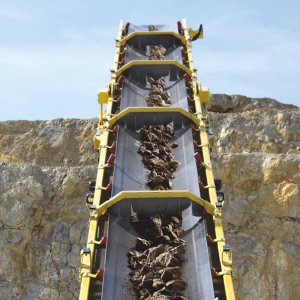Industry Needs Better Fiscal Framework

STORY INLINE POST
For centuries, the mining industry in Mexico has been an important factor for the country’s economy, and it continues to represent a fundamental pillar for Mexico’s economic growth. In 2018, according to INEGI, the mining and metallurgic sector in Mexico represented 2.4 percent of the national GDP. The industry was responsible for 379,020 jobs, without considering indirect employment. Unfortunately, tax legislation regulating the industry has been a matter of growing concern. The lack of clear fiscal legislation has generated a variety of interpretations and, in some cases, created risks for industry participants. Since 2013, constant amendments to the fiscal legal framework have posed challenges for the industry when complying with tax obligations fueled by tax authorities’ increasing audit efforts. Here are some of the most relevant issues related to taxation and the mining industry.
PRE-OPERATING EXPENSES
The general rule to deduct pre-operating expenses is a straight-line depreciation over a 10-year period. Prior to 2014, the pre-operating expenses incurred by taxpayers in the mining industry were deductible through a one-time depreciation deduction in the fiscal year in which these were incurred. Currently, mining pre-operating expenses related to exploration of mineral deposits susceptible to exploitation are deductible under the general 10 percent rate. Removing this incentive ignores the industry’s cyclical nature and does not consider the required financial support to develop a mining venture.
SPECIAL MINING DUTY
Mining concession holders are levied a special mining duty at a 7.5 percent rate. However, the determination of this taxable base is technically deficient, with imprecise references to other pieces that can be subject to different interpretations.
EXCISE TAX ON DIESEL
For many years, a tax incentive has supported different taxpayers that acquire diesel fuel for their activities, allowing them to credit the excise tax paid on the fuel purchased against their income tax. In 2019, this tax credit was limited to the yearly income tax (not advanced monthly payments) and only up to that amount, meaning no refundable benefits. Also in 2019, an administrative rule intends to limit this tax benefit for taxpayers having less than USD$50 million in revenue and only if these taxpayers are the direct holders of the mining concessions. These are an example of the decreasing benefits and incentives for the industry and the lack of legal certainty faced on tax-related matters.
DEDUCTIONS CRITERIA
The mining industry faces particular characteristics that are not fully recognized in the fiscal legislation. Mining companies routinely have significant expenses related to infrastructure work performed at the mines and to move vast volumes. These expenses are an integral part of the mineral exploitation, which is insufficiently regulated. Juridical uncertainty arising from these legal voids has led mining industry taxpayers to either adopt very conservative interpretations or, on the other extreme, has led to controversies.
UNIVERSAL OFFSETTING
A temporary provision was introduced in 2019, suspending the possibility to offset favorable balances of one tax against payable balances of another (universal offsetting). Recently the Executive Branch submitted to the Mexican Congress a tax reform initiative contemplating the definitive repeal of the universal offsetting. Although the suspension or definitive repeal of the universal offsetting is not exclusively aimed at the mining industry, such measures have a negative impact on the financials of all Mexican taxpayers by generating potentially severe liquidity deficits. This issue is further exacerbated by the growing delays, often without justification, on the refund of the value added tax. These delays derive from the request of excessive supporting documentation under the guise of noncompliance by direct or indirect suppliers in the production chain.
BORDER REGION BENEFITS
Other examples of this subpar fiscal framework are the lack of specific rules in the application of the northern border region incentives for income and value added taxes for the mining industry taxpayers, and those cases where costs associated with tax abuses performed by third parties are often passed on to compliant taxpayers.
























